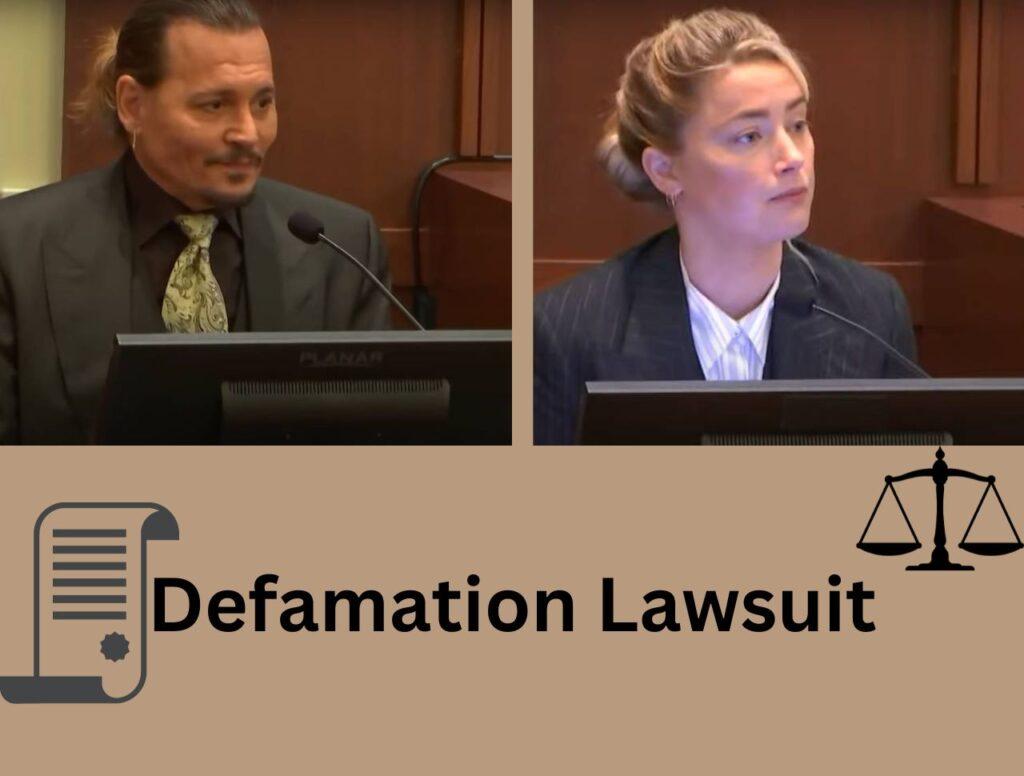A Defamation Lawsuit is a legal action that someone takes against another person who has made false and harmful statements about them. Defamation is a serious legal issue that can affect anyone, from celebrities and politicians to ordinary citizens and businesses.
According to the Ministry of Justice, the number of defamation lawsuits in the US reached a record high of 323 in 2019, a 22% increase from 2018. This article will guide you through the basics of defamation law, the process of filing a claim, and what to expect from a lawsuit. It will also analyze some of the most famous and recent defamation cases in the US.
Elements of a Defamation Claim
To win a defamation lawsuit, you must prove four elements: defamatory statement, publication, identification, and falsity.
- A defamatory statement tends to lower the reputation of another person in the eyes of reasonable people. For example, accusing someone of committing a crime, being dishonest, or having a disease could be defamatory.
- Publication means that the statement was communicated to someone other than the person defamed. This could be done verbally, in writing, or online. For example, posting a negative review on a website, sending an email to a group of people, or broadcasting a radio show could be considered publication.
- Identification means that the statement referred to the person suing for defamation. The statement does not have to name the person explicitly, as long as it is clear who is being referred to. For example, using a nickname, a description, or a photograph could be enough to identify someone.
- Falsity means that the statement was not true or substantially true. Truth is an absolute defense against defamation, meaning that if you can prove that what you said was true or mostly true, you cannot be held liable for defamation.
In addition to these four elements, some plaintiffs may also have to prove harm and fault. Harm means that the statement caused actual damage to the person’s reputation, such as loss of income, emotional distress, or humiliation.
Fault means that the person who made the statement acted with negligence or malice, meaning that they either did not care about the truth or knew it was false and intended to harm the person.
Libel and Slander: Defamation Lawsuit
Defamation can be divided into two types: libel and slander. Libel is defamation in written or permanent form, such as books, newspapers, magazines, websites, emails, or photographs. Slander is defamation in spoken or transient form, such as speech, gestures, or sounds.
The main difference between libel and slander is that libel is generally easier to prove and harder to defend than slander. This is because libel leaves a lasting record that can be verified and circulated widely, while slander is often fleeting and hard to capture. Libel also tends to cause more damage than slander because it reaches more people and lasts longer.
Another difference between libel and slander is that libel usually requires proof of harm and fault for all plaintiffs, while slander usually requires proof of harm and fault only for private plaintiffs. Public plaintiffs are those who are public officials or public figures who have voluntarily exposed themselves to public scrutiny. Private plaintiffs are those who are not public officials or public figures and have more privacy rights.
For example, if a newspaper publishes an article falsely accusing a politician of corruption (libel), the politician would have to prove harm and fault to win a defamation lawsuit. If a neighbor tells another neighbor falsely that a teacher is having an affair with a student (slander), the teacher would only have to prove harm and fault if they are a private plaintiff.
One exception to this rule is slander per se, which is slander that is so harmful that it does not require proof of harm or fault. Slander per se usually involves statements that accuse someone of committing a crime, having a loathsome disease, being unchaste or unfaithful, or being incompetent or dishonest in their profession or business.
For example, if someone tells another person falsely that a doctor has AIDS (slander per se ), the doctor would not have to prove harm or fault to win a defamation lawsuit.
Filing a Defamation Claim
If you believe you have been defamed by someone else’s statement, you may want to file a defamation claim against them. Here are some steps you should take before and after filing your defamation claim:
Find a lawyer. Defamation law is complex and varies by state. You will need an experienced lawyer who can advise you on your rights and options, gather evidence for your case, draft your complaint and other legal documents, negotiate with the other party or their lawyer, represent you in court, and protect your interests throughout the process.
Send a demand letter. A demand letter is a formal letter that asks the person who defamed you to fix their mistake, such as by taking back their statement, saying sorry, paying money, or doing something else that would solve the problem. A demand letter can help you avoid a lawsuit by giving the other party a chance to make things right without going to court. It can also show that you were reasonable and fair before suing them.
File a complaint. A complaint is a legal document that starts your lawsuit. It tells the facts, the legal reason, the money you want, and the solution you ask for. File your complaint with the right court, which depends on where you live, where the other party lives, where the statement was said or written, and how much money you want. You must also pay a fee and follow the court’s rules.
Serve the defendant. Serving the defendant is giving them your complaint and a summons. A summons sues them and orders them to answer their complaint in a certain time. You must serve the defendant as the court says, which may be by hand, mail, or publication. You must also file a proof of service with the court, which shows that you served the defendant correctly.
Engage in discovery. Discovery is when both parties share information and evidence before trial. It can involve different methods, such as written questions, requests for documents, requests for facts, oral interviews, and court orders. Discovery can help you get more evidence, check your arguments, and get ready for trial.
What to Expect from a Defamation Lawsuit
A defamation lawsuit can be a long, costly, and stressful process. Here are some things you should expect from a defamation lawsuit:
Duration. A defamation lawsuit can take a long or short time to end, depending on the case, the evidence, the parties, and the court. Some cases may end before trial by motions, settlements, or ADR, which are ways to solve disputes without going to court.
Costs. A defamation lawsuit can be expensive for both parties. The costs may include filing fees, lawyer fees, expert fees, discovery fees, travel expenses, and court costs. Some lawyers may charge by the hour, by the case, or by contingency. Only if they win or settle the case for you, do they get paid. Some courts may award costs to the prevailing party, which means that the losing party has to pay some or all of their costs.
Defenses. The person who defamed you may use different defenses to escape or lower responsibility.
Some common defenses are:
Truth: Their statement was true or mostly true.
Privilege: They made their statement in a situation that protects them from defamation claims, like in court, in parliament, or fair reports of official records.
Consent: You let or asked them to make their statement.
Opinion: Their statement was not a fact but their personal view or feeling.
Fair comment and criticism: Their statement was an honest opinion on something of public interest.
Retraction: They took back or fixed their statement before or after you sued them.
Remedies. Depending on your case, you may get various remedies if you win your defamation lawsuit. Some common remedies include injunctions, which are court orders that prohibit or require certain actions, such as removing or retracting a defamatory statement; declaratory judgments, which are court declarations that affirm or deny certain rights or facts, such as confirming that a statement was false and defamatory; damages, which are monetary awards that compensate you for your losses or punish the other party for their conduct; and apologies, which are expressions of regret or remorse by the other party.
Appeals. Either party may appeal the final judgment of the trial court if they believe there was an error of law or fact that affected the outcome of the case. An appeal is not a new trial but a review of the trial record by a higher court. The appellate court may affirm, reverse, modify, or remand (send back) the judgment of the trial court. An appeal can take several months or years to complete and may involve additional costs and procedures.
Famous and Recent Defamation Cases in the US
Defamation cases often involve celebrities, politicians, media outlets, and other prominent figures who have high public profiles and reputations. Defamation cases can also raise important issues of freedom of speech, privacy, and public interest. Here are some of the most famous and recent defamation cases in the US:
Johnny Depp vs. The Sun:
In 2020, actor Johnny Depp sued the British tabloid The Sun for libel over an article that called him a “wife beater” and accused him of abusing his ex-wife, actress Amber Heard. Depp denied the allegations and claimed that he was the victim of domestic violence by Heard.
The trial lasted for 16 days and featured dramatic testimonies, shocking evidence, and celebrity witnesses. The judge ruled in favor of The Sun, finding that the article was substantially true and that Depp had assaulted Heard on at least 12 occasions.
Depp appealed the verdict but was denied permission to challenge it by the UK Court of Appeal. Depp also filed a separate defamation lawsuit against Heard in the US for $50 million over an op-ed she wrote for The Washington Post about her experience as a survivor of domestic abuse. The trial is scheduled for 2022.
Nicholas Sandmann vs. CNN, The Washington Post, and NBC:
In 2019, Nicholas Sandmann, a Kentucky high school student, sued CNN, The Washington Post, and NBC for defamation over a viral video of him wearing a MAGA hat and smiling at a Native American activist.
Sandmann said the media outlets made him look like a racist and a bully without checking the facts or the situation. He wanted $800 million in damages for hurting his reputation and feelings.
The media outlets said their reporting was free speech and that Sandmann was a public figure who had to show they acted with bad intent. The cases were first thrown out by a judge but later brought back after Sandmann’s lawyers changed their complaints.
In 2020, Sandmann said he had settled his lawsuits with CNN and The Washington Post for unknown amounts. He also settled his lawsuit with NBC in 2021.
Elon Musk vs. Vernon Unsworth:
In 2018, Elon Musk, the founder of Tesla and SpaceX, sued Vernon Unsworth, a British diver who helped rescue 12 boys and their soccer coach from a flooded cave in Thailand, for defamation over a tweet that called him a “pedo guy“.
He said he was joking with the tweet and did not mean to call Unsworth a pedophile. He also argued that “pedo guy” was a common insult in South Africa, where he grew up, and that it did not imply sexual misconduct.
Unsworth claimed that the tweet was false and malicious and that it damaged his reputation and caused him emotional distress. He sought $190 million in damages, including $150 million in punitive damages.
The trial lasted for four days and featured heated exchanges, emotional testimonies, and apologetic statements. The jury ruled in favor of Musk, finding that his tweet did not meet the legal standard of defamation.
Defamation is a serious legal issue that can affect anyone who makes or receives false and harmful statements about others. Defamation law is complex and varies by state and situation. Filing a defamation claim can be a long, costly, and stressful process that requires proof of several elements, such as defamatory statements, publication, identification, falsity, harm, and fault. Defamation lawsuits can also involve various defenses, remedies, appeals, and alternatives. Defamation cases can also involve famous and influential people and raise important issues of freedom of speech, privacy, and public interest.
If you think you have been defamed or accused of defamation by someone else’s statement, you should consult a lawyer who can advise you on your rights and options. You should also act quickly and reasonably to resolve the issue before it escalates into a lawsuit or causes more damage to your reputation.
Also, Learn: Suing a Lawyer: How, When, and Why






